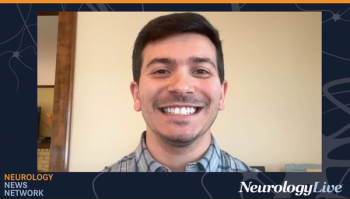
Dementia and Alzheimer Disease
Latest News

Latest Videos

Podcasts
CME Content
More News

Results from the EVOKE and EVOKE+ phase 3 studies reported that oral semaglutide did not significantly reduce clinical progression in patients with early symptomatic Alzheimer disease.

Here's some of what is coming soon to NeurologyLive® this week.

Acumen Pharmaceuticals initiates a phase 2 trial extension for sabirnetug, targeting early Alzheimer disease and aiming for long-term safety insights.

A recent trial reveals that online cognitive training and other interventions are ineffective for treating long COVID cognitive symptoms, highlighting treatment challenges.

Daniel Mikol, MD, PhD, vice president of neuroscience development at AbbVie, discussed how precision tools, AI, and patient partnership are reshaping the design and execution of modern neuroscience clinical trials.

Jayeeta Basu, PhD, an assistant professor in the departments of Psychiatry and Neuroscience at NYU Langone, commented on how newly decoded entorhinal–hippocampal circuits stabilize memory maps during learning.

Here's some of what is coming soon to NeurologyLive® this week.

Catch up on any of the neurology news headlines you may have missed in October 2025, compiled into 1 place by the NeurologyLive® team.

Here's some of what is coming soon to NeurologyLive® this week.

A study reveals that genetic counseling significantly empowers individuals at risk for frontotemporal dementia, highlighting the need for best practice guidelines.

Neflamapimod Phase 3 Trial in DLB, Troriluzole Gets CRL for SCA, Periodontal Disease and Stroke Risk
Neurology News Network for the week ending November 8, 2025. [WATCH TIME: 4 minutes]

Axsome Therapeutics advances AXS-05 for Alzheimer agitation, showcasing promising trial results and potential for treating major depressive disorder.

Brad Racette, MD, FAAN, the Kemper and Ethel Marley Chair for Neurology at Barrow Neurological Institute, discussed his keynote lecture on the neurologic health effects of electric vehicles and the global implications of environmental exposure.

Gregory Hawryluk, MD, PhD, a neurosurgeon at Cleveland Clinic, spoke on the development and clinical impact of new global guidelines for penetrating traumatic brain injury.

Neurology News Network for the week ending November 1, 2025. [WATCH TIME: 3 minutes]

Mind Moments®, a podcast from NeurologyLive®, brings you an exclusive interview with Rebecca Edelmayer, PhD. [LISTEN TIME: 14 minutes]

The FDA accepts Lantheus' MK-6240 application, a promising PET imaging agent for Alzheimer disease, enhancing diagnosis and treatment strategies.

A recent study highlights the increased mortality risk linked to benzodiazepine and antipsychotic use in hospice patients with dementia, urging new prescribing guidelines.

A recent meta-analysis reveals frontotemporal dementia's incidence and prevalence, highlighting its significance in clinical research and treatment advancements.

The FDA has granted fast track designation to Eisai’s etalanetug, an anti-tau antibody targeting tau pathology in Alzheimer's disease.

Beth McQuiston, MD, neurologist and medical director in Abbott’s diagnostics business, discussed the clinical value of Abbott’s FDA-cleared i-STAT TBI test as it was named to TIME’S 2025 Best Inventions List.

Roche's Elecsys pTau181 test receives FDA clearance, revolutionizing Alzheimer diagnosis in primary care with a minimally invasive blood test.

Take 5 minutes to catch up on NeurologyLive®'s highlights from the week ending October 10, 2025.

Neflamapimod Advances to Phase 3 Trial in Dementia With Lewy Bodies After Positive RewinD-LB Results
Neflamapimod treatment led to slowing of clinical worsening, as assessed by Clinical Dementia Rating-Sum of Boxes, when drug concentrations were achieved.

Take 5 minutes to catch up on NeurologyLive®'s highlights from the week ending October 3, 2025.

















